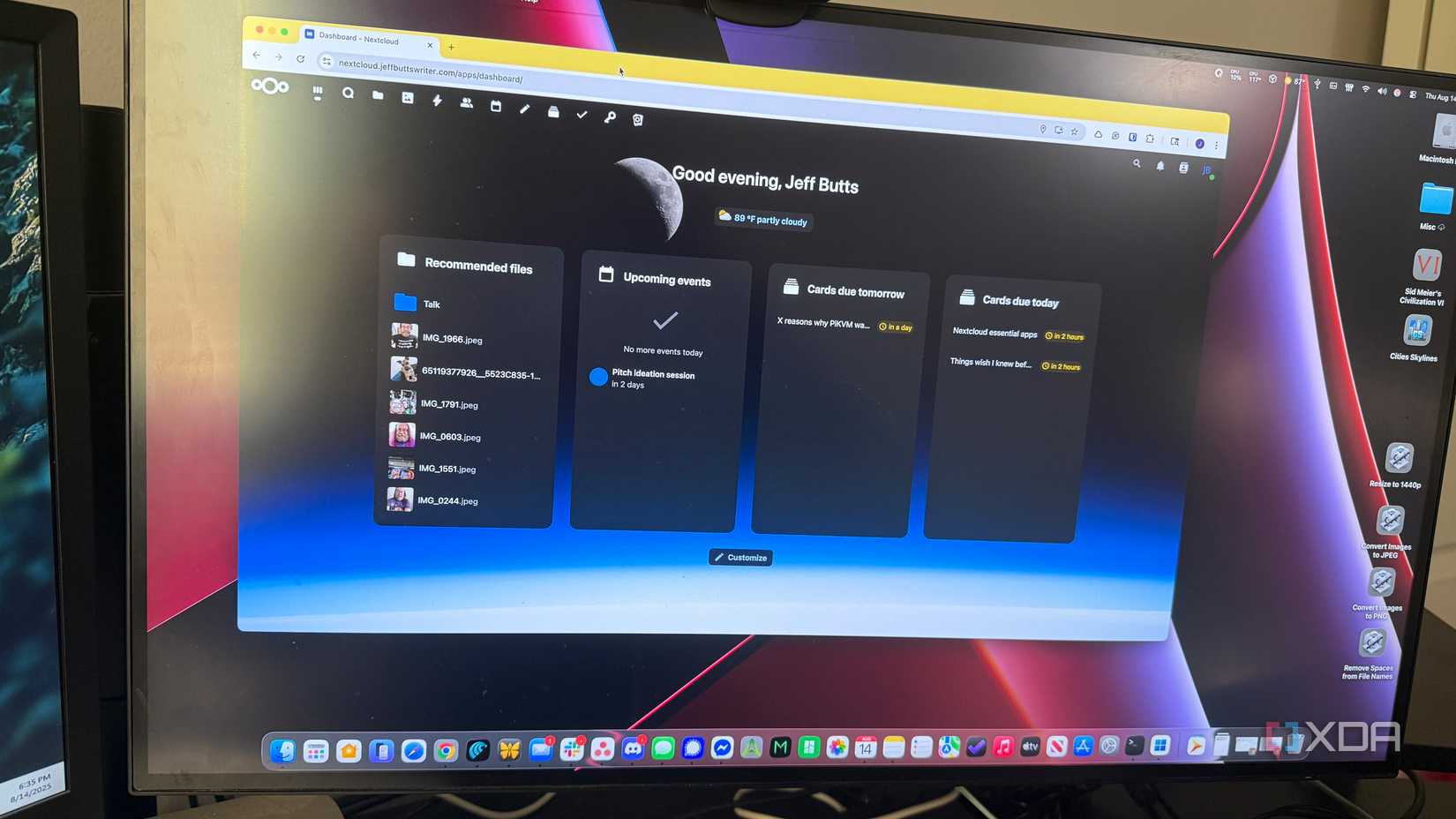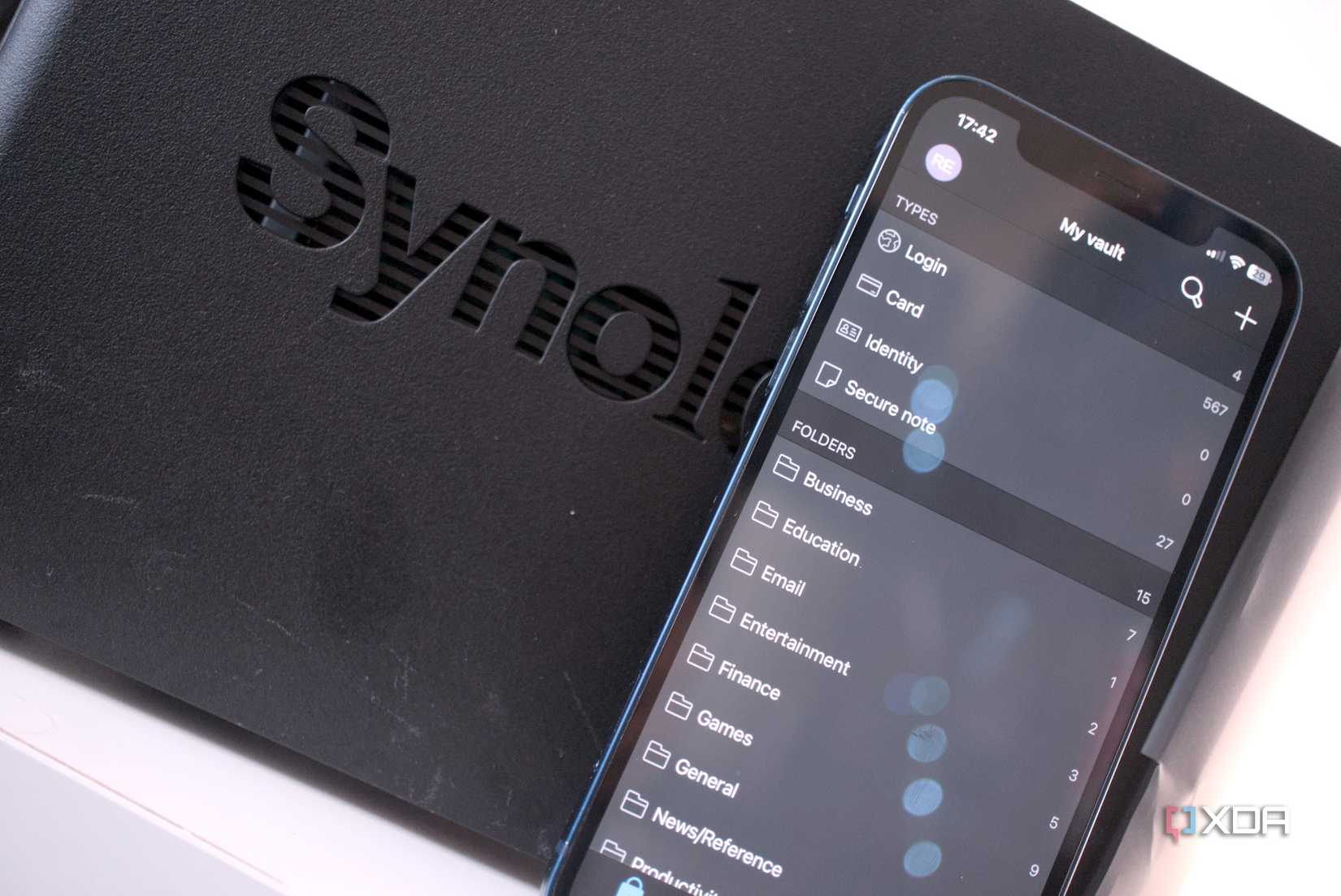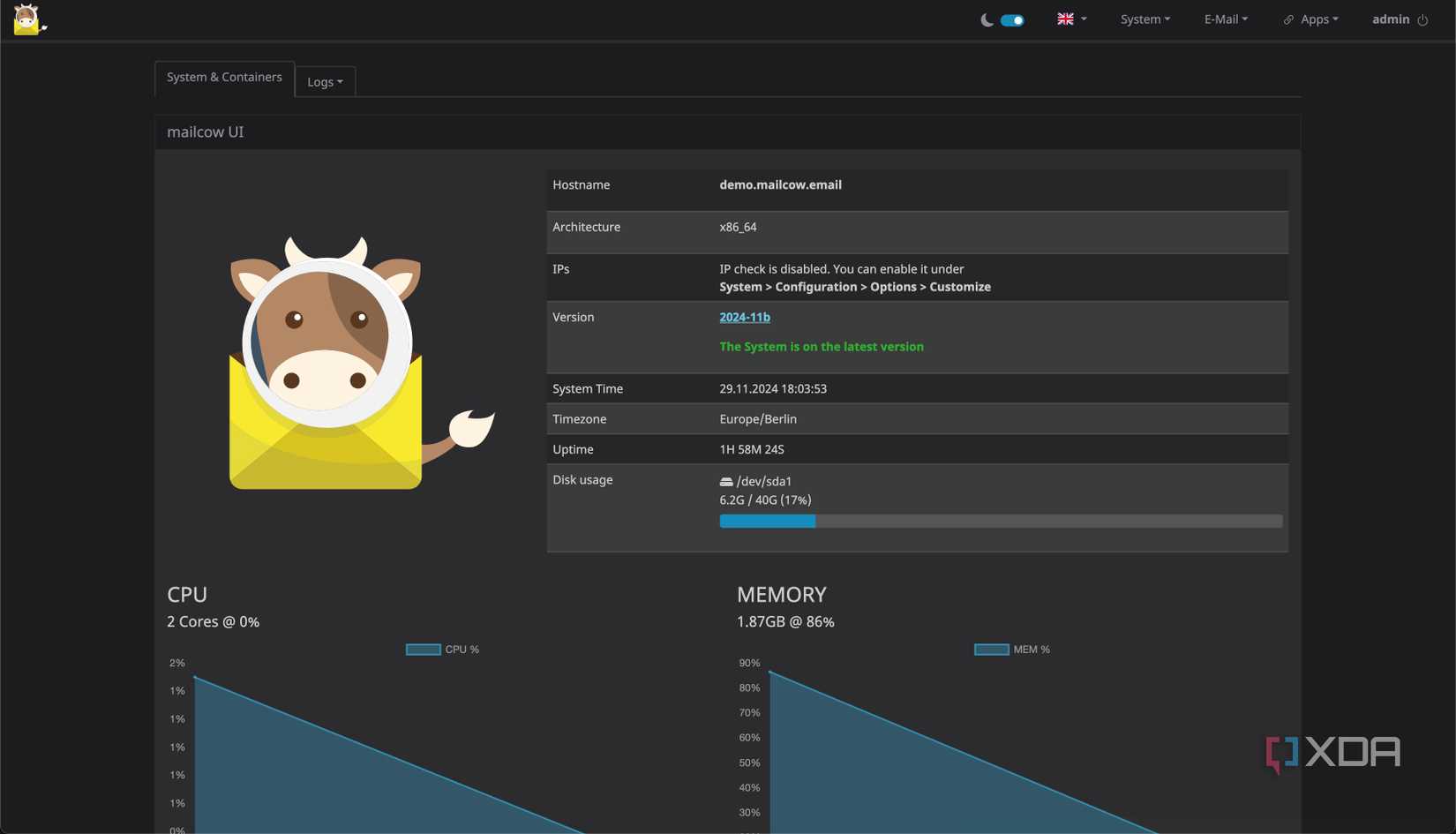Experimenting with self-hosted services has been one of the most rewarding ways for me to learn about running a server, working in Docker, and networking to tie it all together. While I'm still early in my self-hosting journey, I've tried my fair share of services. Some look great on paper, only to become more trouble than they’re worth. These five are the ones I gave a fair shot before finally pulling the plug.
Nextcloud
I'll consider going back eventually

I'm all for trying to break reliance on corporate cloud-based services, and Google Drive is chief among them. Seamless file access from anywhere, on your own hardware, with add-on plugins to boot was enough for me to take up trying it myself.
Sync issues ultimately ruined what is still, in theory, a great replacement for cloud storage. I love the ability to integrate a calendar and Google Docs-esque file editing, but the reliability ultimately killed it for me. In reality, my $0.99 storage subscription is enough to store what I need—for now, at least. I'll definitely end up trying it again once I have time to iron out all the issues, and I have no doubts it can be a reliable service, but at this time, sticking with Drive makes more sense.
Plex
There are other, friendlier options
Plex was a mainstay on my home server, and while it served me and my relatively small library quite well for a long time, it's time to try something else. I really enjoy the polish of both the server-side experience as well as the client-side, but the recent additions of a paywall to other, previously available features, as well as weird emails outting the watch history of my family and friends, were signs it was time to consider other options.
Jellyfin was chief among them, removing the bloat and subscriptions that made Plex feel so much heavier than it needed to be. Having something free, open-source, and can run entirely on my LAN, without ever having to route through Plex's servers.
Bitwarden
It's not you, it's me

Self-hosting your password library can be a game-changer. I won't deny that. In my attempt to remove my reliance on cloud-based services, my password vault seemed like a no-brainer, relatively simple thing to setup, and it was for the most part. There's nothing wrong with Bitwarden or Vaultwarden for that matter, but after one small hiccup while traveling, I decided to can my self-hosted Bitwarden vault.
Bitwarden does save a cache of your passwords on-device, but if you make any changes, and they fail to sync, you've potentially lost a saved password, which is what happened to me during my most recent travels. For one reason or another, my home lab shut down while I was away, and cause all my services to go down temporarily. This wouldn't have been a big deal, but it caused enough of an annoyance for me to switch back to the first-party Bitwarden solution. Eventually, once I better set up my home
Pi-hole
There are better options

Pi-hole is awesome when it works. Network-wide ad-blocking is something that's hard to give up when everything is running smoothly. When it's not, it's a huge headache that takes up valuable time to troubleshoot and get back online. Everything about it is really attractive: it runs on low-power hardware, is very lightweight, and there's no client browser extension required, but it's caused enough issues for my household that it's time to try something else.
In my experience, in multiple different circumstances, Pi-hole would pin my device's CPU at 100%, fail to respond to DNS queries, and just straight up crash sometimes. And it's not like I put it under heavy load, it should be able to manage traffic from a couple of different sources at once. Most of the time, it was totally fine, but after trying it on a couple of different devices and having frustrating hiccups in service, I decided to ditch it for another DNS solution. I'll admit, it could be some kind of user error, but Pi-hole isn't something I'm hosting on my network anymore.
Email server
Never again

Setting up an email server sounded like a fun tinkering project in theory, and it was going alright for the first few hours, but even after going through the hell of setting it all up, it became very apparent why nobody recommends doing this. Having full control over all your data and privacy seemed like they'd be a worthwhile benefit, but even if you get it all set up properly, you're now responsible for maintaining a mission-critical service, where even a few hours of downtime could mean important missed emails.
Outbound mail is also a huge issue, as keeping your mail out of spam and junk boxes meant even more configuration, and sometimes that's not even possible for some of the bigger corporate email providers. I'm sticking with Gmail, and there's no shame in that.
Convenience is a priority for me
While I do value privacy and having control over my data and activities, these services crossed the line where convenience outweighs control. Don't get me wrong, I still enjoy tinkering with servers and keeping a few tools self-hosted, but for mission-critical stuff I use every day, I'm going to need to spend a lot more time finding the right services, and prioritizing redundancy.
.png)











 English (US) ·
English (US) ·